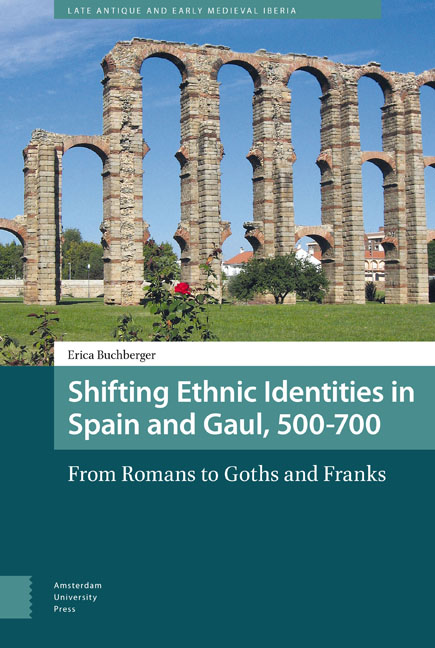5 - Venantius Fortunatus
Published online by Cambridge University Press: 12 February 2021
Summary
Although Gregory is the most familiar figure of sixth-century Gaul, and therefore the one we often turn to for descriptions of the period, he is not our only contemporary source. Relying excessively on him blinds us to a wider variety of perspectives and experiences that he chose not to share. Venantius Fortunatus (d. 600), an Italian-born poet writing in Gaul, was a friend of Gregory and wrote many poems under his patronage. Among the multiple scripts of identity these men could choose from within the common discourse of their time and place, Gregory elected not to describe his contemporaries as Romans, but Fortunatus did, though in rather different senses within the poetic genre. By exploring the ways Fortunatus wrote about Roman identity and related it to barbarian and Frankish identity in his poems (and a few saints’ vitae), historians get a glimpse into the fluctuations of these identities within their society.
Studies of Venantius Fortunatus have historically understood him as a last bearer of traditional Roman rhetoric in an increasingly barbarian world or as the first medieval poet to turn traditional motifs into something new. Dill, for example, called him ‘almost the last link between the classical and the medieval world’, and Tardi ‘a last representative of Latin poetry’. Recent scholarship has begun to understand him as simply living in a time of rapid change and drawing on the resources of the past to help himself and others navigate this shifting landscape. As they did so, they began to think about Romanness and other identities in new ways, and Fortunatus aided this process. Among his most potent resources was classical rhetoric about Romans and barbarians. Though of course both terms could have widely varied meanings in both the imperial and the post-imperial eras, their common pairing as opposites – one civilized and the other not, one a political grouping and the other seen as kin-based – remained a powerful image.
When Fortunatus mentions peoples of the Merovingian kingdoms in his writing, it is usually as Romans and barbarians. Sometimes he specifies particular barbarian groups with ethnonyms like ‘Frank’, but only in specifically royal or international settings.
- Type
- Chapter
- Information
- Shifting Ethnic Identities in Spain and Gaul, 500–700From Romans to Goths and Franks, pp. 133 - 146Publisher: Amsterdam University PressPrint publication year: 2017

